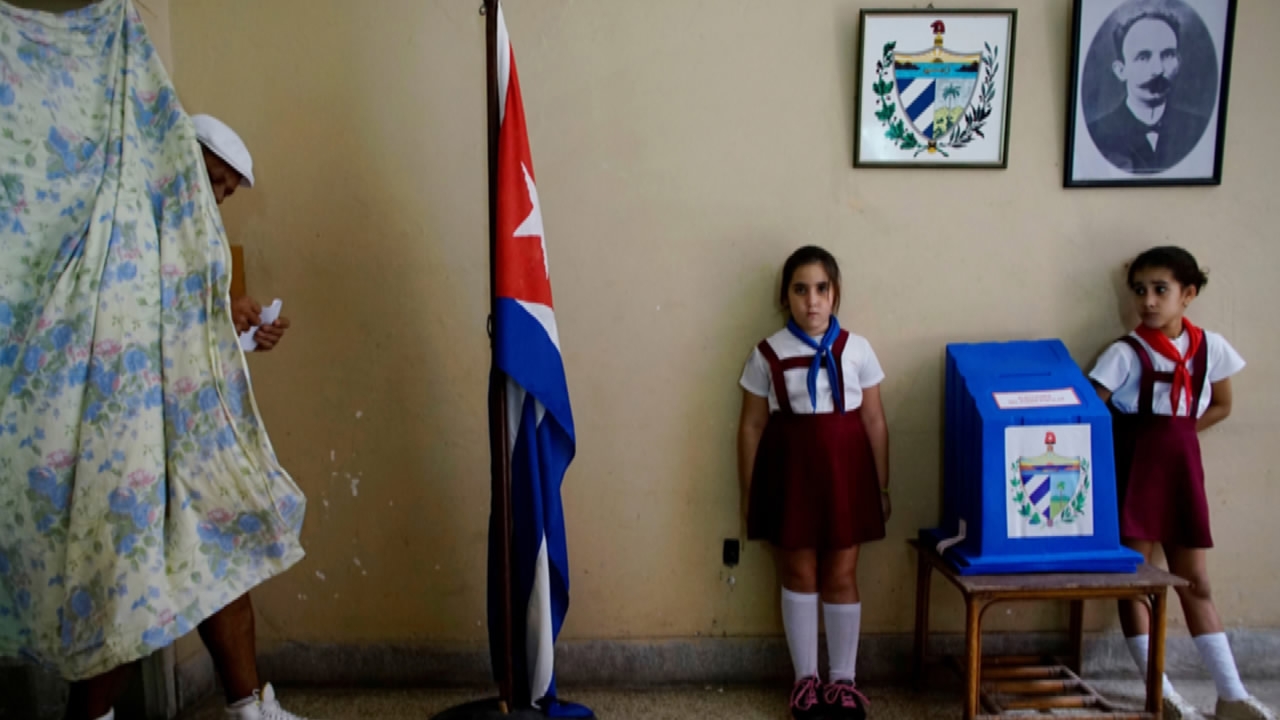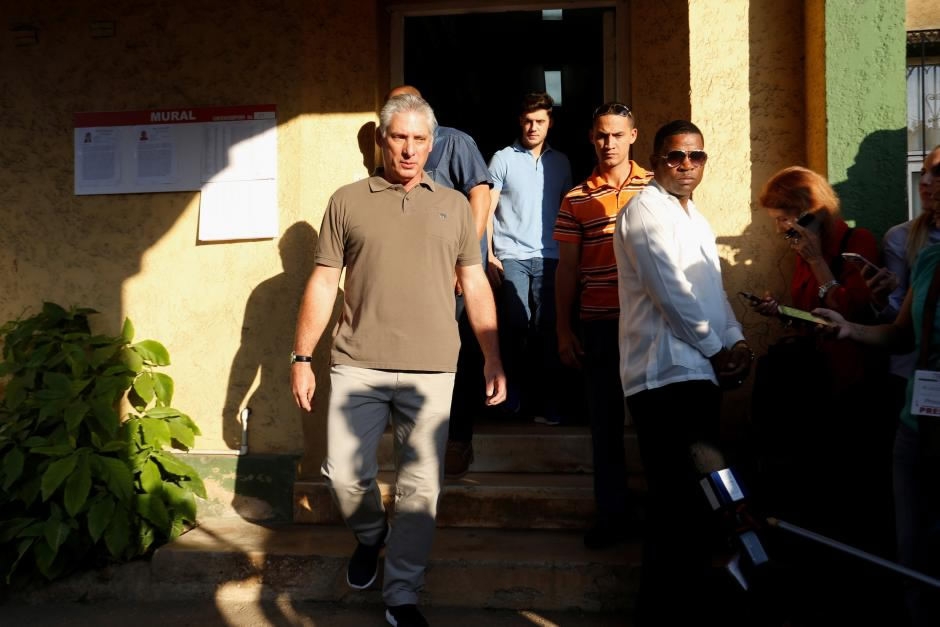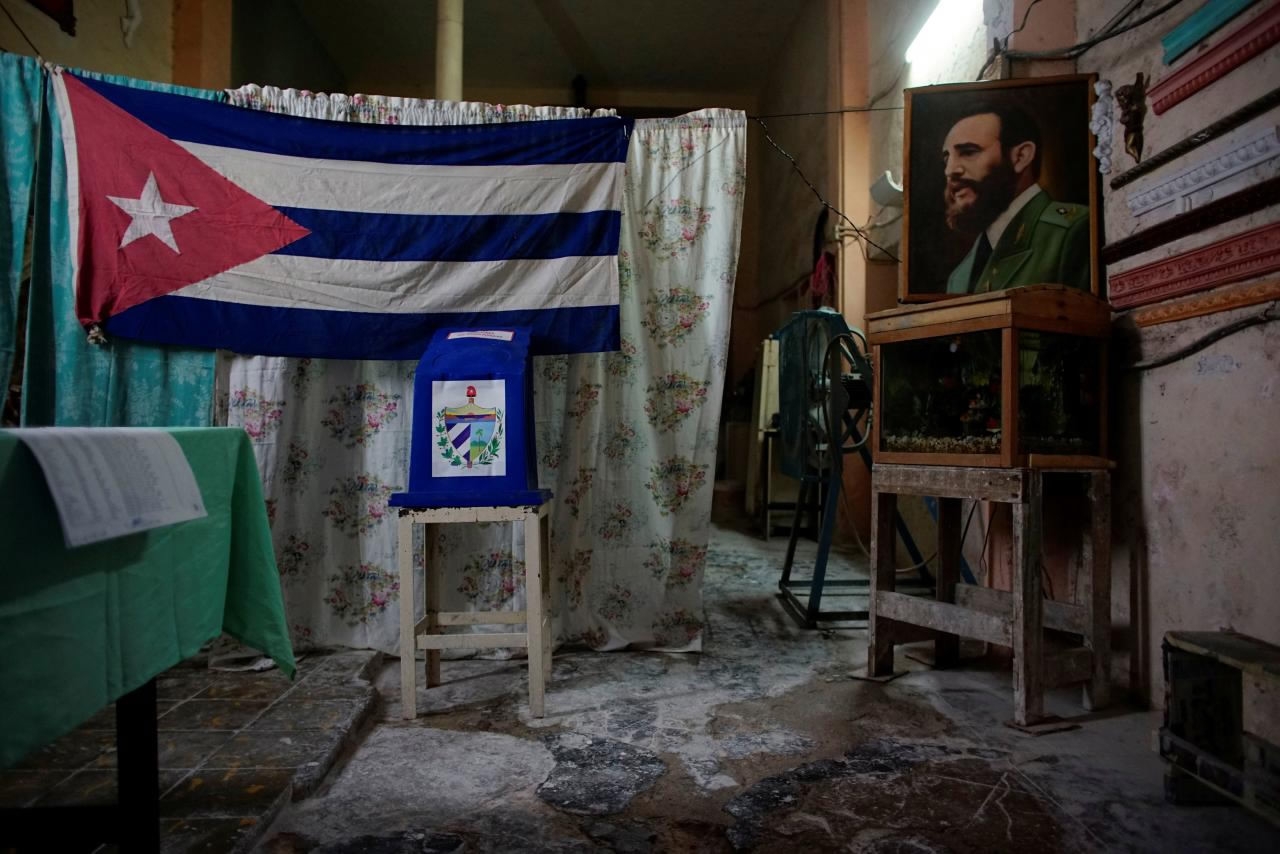
Politics
08:54, 27-Nov-2017
Cubans vote in local elections in run-up to selection of new president
By Michael Voss

Cuba looks ahead to a post-Castro era. Voting is underway to choose representatives in municipal assemblies, and a presidential election in February will end the Castro’s 60-year rule.
It was more of a festive occasion, celebrating the life of Cuba’s former leader Fidel Castro, rather than mourning his demise. On Saturday night, hundreds of students and other Cubans packed the giant steps leading up to the University of Havana.
Castro was a law student here at the school and it was here he first became involved in radical politics. He became one of the leading political giants of the 20th century, leading the Cuban revolution and ruling the island for more than 50 years.

Cuba's First Vice-President Miguel Diaz-Canel (L) leaves a polling station after casting his vote in Havana, Cuba November 26, 2017. /Reuters Photo
Cuba's First Vice-President Miguel Diaz-Canel (L) leaves a polling station after casting his vote in Havana, Cuba November 26, 2017. /Reuters Photo
The anniversary of his death coincides with start of Cuba’s electoral cycle. Among the senior politicians attending the rally was 57-year-old Miguel Diaz-Canel, who is tapped to become the next president of Cuba.
Sunday morning Cubans lined up outside polling stations to vote for their local municipal authorities. In the coming weeks there will be further elections leading to a new National Assembly.
When the parliament sits for the first time in February, the legislative body will select the country’s president. Current president Raul Castro has already announced that he will step down.
“My hope is that the revolution is maintained,” one woman said. “The historic leaders who fought for the revolution will not be with us. I think the principles instilled in the new generations will continue and we keep the achievements and victories of the Cuban revolution.”

A view of a polling station decorated with an image of late Cuban President Fidel Castro moments before its opening to the public in Havana, Cuba, November 26, 2017. /Reuters Photo
A view of a polling station decorated with an image of late Cuban President Fidel Castro moments before its opening to the public in Havana, Cuba, November 26, 2017. /Reuters Photo
Others hope the economy will grow, and problems can be found for varying social and economic problems.
Campaigning is not allowed in Cuban elections. Instead, a brief biography of each candidate is posted in front of the polling booth. The authorities say this creates a level playing field, because you don’t depend on who has the largest financial contributions in order to win.
For municipal elections, there are on average two candidates for each post. By the time the national elections come along there is no choice, with one pre-selected candidate for each seat.

SITEMAP
Copyright © 2018 CGTN. Beijing ICP prepared NO.16065310-3
Copyright © 2018 CGTN. Beijing ICP prepared NO.16065310-3